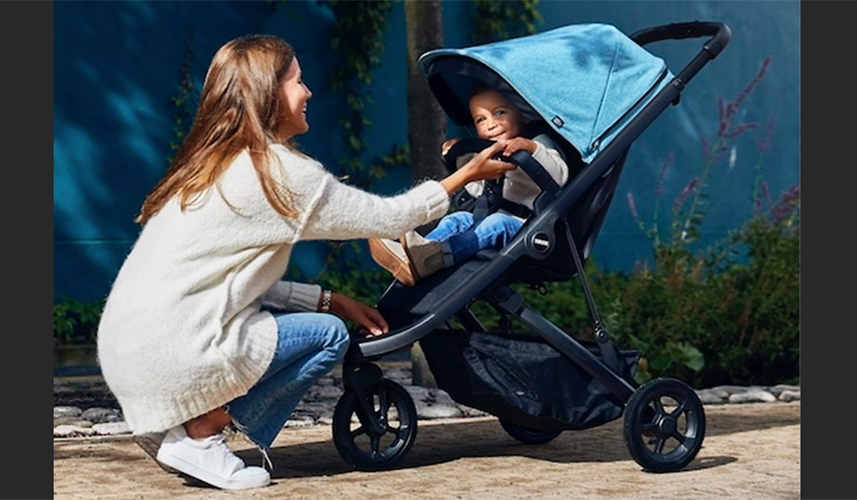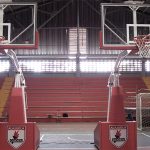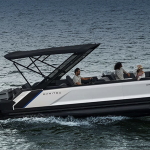Thule Group reported sales declined 7.5 percent on a currency-neutral basis in the first quarter. Sales were down 13 percent in the Americas region and 5.7 percent in the Europe & ROW region.
First-quarter highlights include:
- Net sales for the quarter amounted to SEK 1,744 million against SEK 1,834 million, corresponding to a decrease of
4.9 percent. Adjusted for exchange rate fluctuations, sales declined 7.5 percent. - Operating income amounted to SEK 325 million against SEK 342 million, corresponding to a decrease of 4.9 percent and a margin of 18.7 percent. Adjusted for exchange rate fluctuations, the margin declined 0.4 percentage points.
- Net income was SEK 241 million against SEK 253 million.
- Cash flow from operating activities totaled SEK 8 million against SEK 145 million.
- Earnings per share before dilution amounted to SEK 2.33 against SEK 2.46.
- The coronavirus pandemic impacted sales during the second half of March, which is the most important part of the quarter. As communicated earlier, Thule Group foresees a more significant impact in the second quarter, which is normally the company’s peak season.
The full statement from Thule Group’s CEO and President, Magnus Welander, described the quarter as a “solid quarter despite significant negative effects due to coronavirus as of mid-March.”
He said, “In the first quarter of 2020 the Thule Group, like most of the world, lived through two completely different phases. We started the year very strong with increased sales, improved profitability and more efficient use of capital. When the massive lockdowns were implemented in our main markets in Europe and North America, as a consequence of the coronavirus pandemic, we saw a significantly reduced demand and needed to act quickly in a completely new reality.
“Sales in the quarter decreased with SEK 90m to SEK 1,744m, a decrease of 4.9 percent (7.5 percent excluding currency effects). Underlying EBIT in the quarter was SEK 326m (342), which meant that we delivered the same EBIT-margin as Q1’s previous year of 18.7 percent and generated an improved cash flow of SEK 8m (-145).”
Region Europe & ROW — Significant Impact From State Measures To Handle The Pandemic
In the quarter, sales in the Europe & ROW regions declined with 5.7 percent (currency-adjusted).
Welander said, “The coronavirus outbreak and the reduced travel in the Asia region led to the previously rapidly growing Luggage category and turned to decline in the quarter. In Europe, all markets grew until mid-March, and then encountered different levels of decline directly related to the degree of lockdowns in the markets with store closures and stay at home orders.
“Sales dropped very significantly in the markets with the most drastic measures implemented in France, Italy, Spain, and the UK. Sales decline in other markets was still considerable, but less, as certain stores were allowed to be open and physical activities were allowed in parks and nature.
“Positive to note was that the Active with Kids category grew in the quarter driven by the launch of the new Thule Spring stroller, shown above, but also by good development in the other two stroller models.”
Region Americas – Significant Lockdowns In North America At The End Of The Quarter
In Region Americas, sales decreased by 13 percent in the quarter (currency-adjusted).
Welander said, “As in Europe, sales grew in North America until mid-March and then dropped significantly. The most important sales regions in the U.S. and Canada (California, New England and Quebec) were some of the regions that introduced the most stringent pandemic lockdown measures with virtually complete store shutdowns and demands on citizens to stay at home.
Sales in Brazil developed well, while the rest of Latin America experienced a reduction in demand at the end of the quarter.
Also in Region Americas, the Active with Kids category developed best, with strong growth in the quarter. Driven by the new Thule Spring stroller but also the Thule Urban Glide 2 jogging stroller.
Focus On Current Challenges Short-Term, Balanced With Long-Term Focus
Welander said, “We have since the corona outbreak focused on the health and safety of our employees. Measures implemented include travel bans, opportunities to work from home, as well as the implementation of new hygiene and social distancing processes and rules in our assembly plants, distribution centers and offices.
“At the same time, we have acted to ensure that we can cost-efficiently run the business in a short-term situation of significantly decreased demand. We have, therefore, at all our operating units, implemented various levels of short-term furloughs and other cost-reducing initiatives.
“It is currently not possible to estimate how the effect will be in the short-term, and we are therefore implementing measures to meet a short-term challenging financial reality in 2020. However, we are also ensuring that this is done in balance with the drive to meet our long-term strategic agenda and targets. We are committed to our communicated long-term strategy that focuses on utilizing a strong financial position to drive significant initiatives of sustainable product development of fantastic products. We also continue the building of a strong global consumer brand as well as driving efficiency improvements in our supply chain.
“The underlying long-term positive market trends in the segments we operate in and the Company’s leading position in products for an active life close to home, with a clear exposure to “staycation”, makes me optimistic once we come through this current challenging period.”
Photo courtesy Thule
















